[Disclaimer: This article is for informational purposes only and does not constitute medical advice. Always consult a qualified healthcare professional before starting any new treatment or changing your hair care routine.]
Hair thinning is a reality many of us face. As we age, our locks often lose their fullness. In fact, by 70, 80% of men and half of women notice their hair thinning out/baldness (androgenetic alopecia).
As a countermeasure, copper peptides have recently gained attention in the hair care world. These compounds, already known in skincare for their rejuvenating effects, are now being explored for hair growth.
In this article, we will explore how these compounds work and what they might do for your hair’s health.
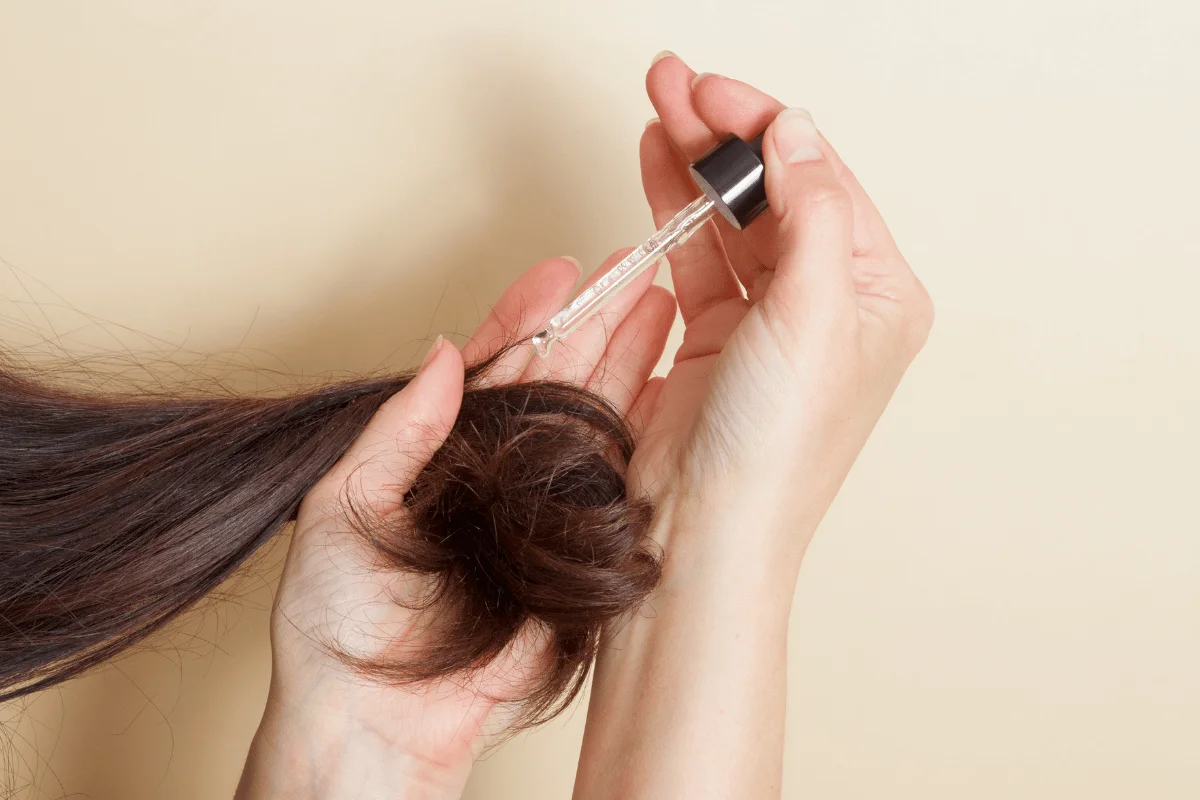
What Are Copper Peptides?
Copper peptides are small protein fragments that contain copper. They are naturally occurring compounds found in our bodies, but their levels tend to decrease as we age.
Copper is essential for various biological processes, including hair growth. It can:
- Stimulate collagen production
- Improve skin firmness and elasticity
- Stimulate nerve outgrowth and regeneration
- Minimize photodamage and hyperpigmentation
- Protect skin cells from UV radiation damage
- Enhance blood vessel formation (angiogenesis)
- Reduce inflammation and neutralize free radicals
- Regulate protein breakdown and cellular health
All these functions play a role in maintaining healthy hair.
Think of copper peptides as tiny messengers in your body. They help deliver copper to where it’s needed most, including the epidermis on your face and scalp.
The most well-known copper peptide is called GHK-Cu (glycyl-L-histidyl-L-lysine copper complex).
But the million-dollar question is:
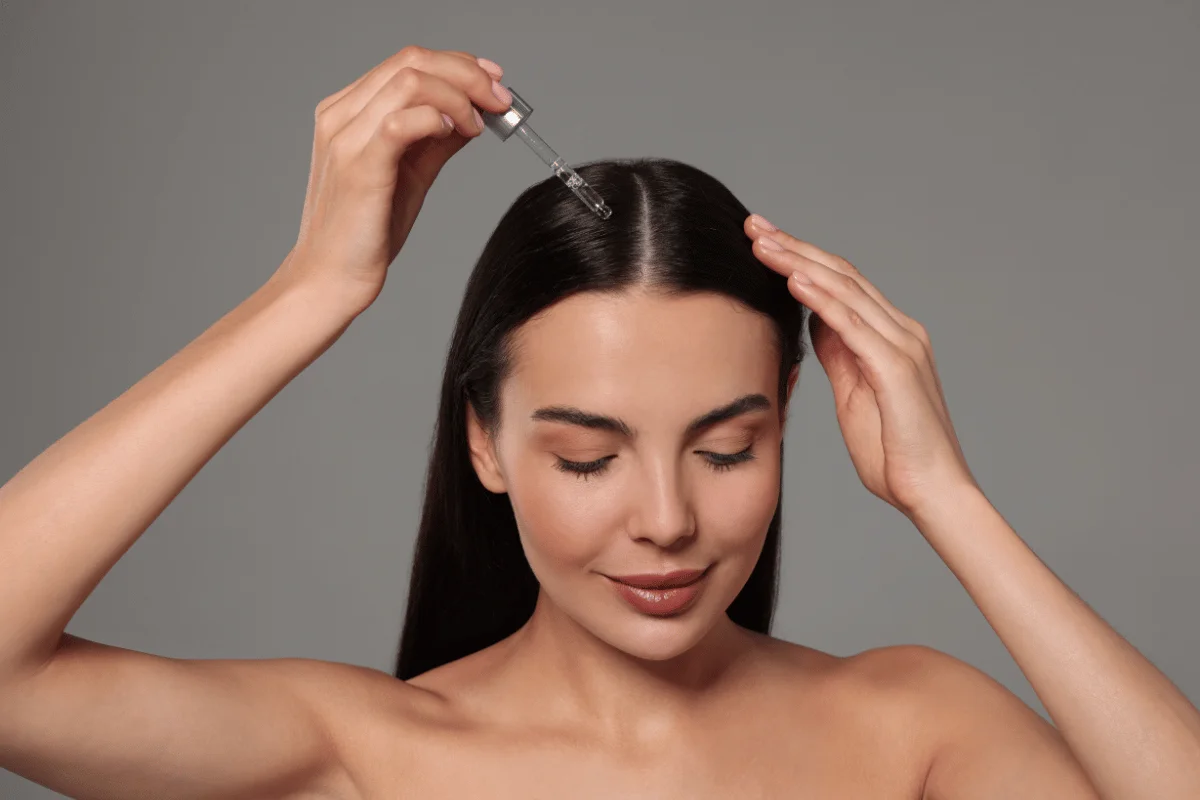
Do Copper Peptides Work for Hair Growth?
The short answer is: there’s promising evidence, but more research is needed. Let’s break down what we know so far.
Several studies have shown positive results when it comes to copper peptides and hair growth:
- A 2007 study published in the Archives of Pharmacal Research found that copper peptides stimulated human hair follicle growth in vitro and increased the size of hair follicles.
- Another study from 2018, published in the International Journal of Molecular Sciences, reported that GHK-Cu could increase hair growth and thickness and enlarge hair follicle size.
- A team of University of Wisconsin researchers found that copper-binding peptides (PC1031) could prolong hair follicles’ growth phase (anagen phase) in animals.
However, while these results are encouraging, most studies have been conducted in lab settings or on animals. We still need more large-scale human trials to confirm these effects.
That said, many people who’ve used copper peptides for hair growth report positive results, so there’s certainly reason to be optimistic.
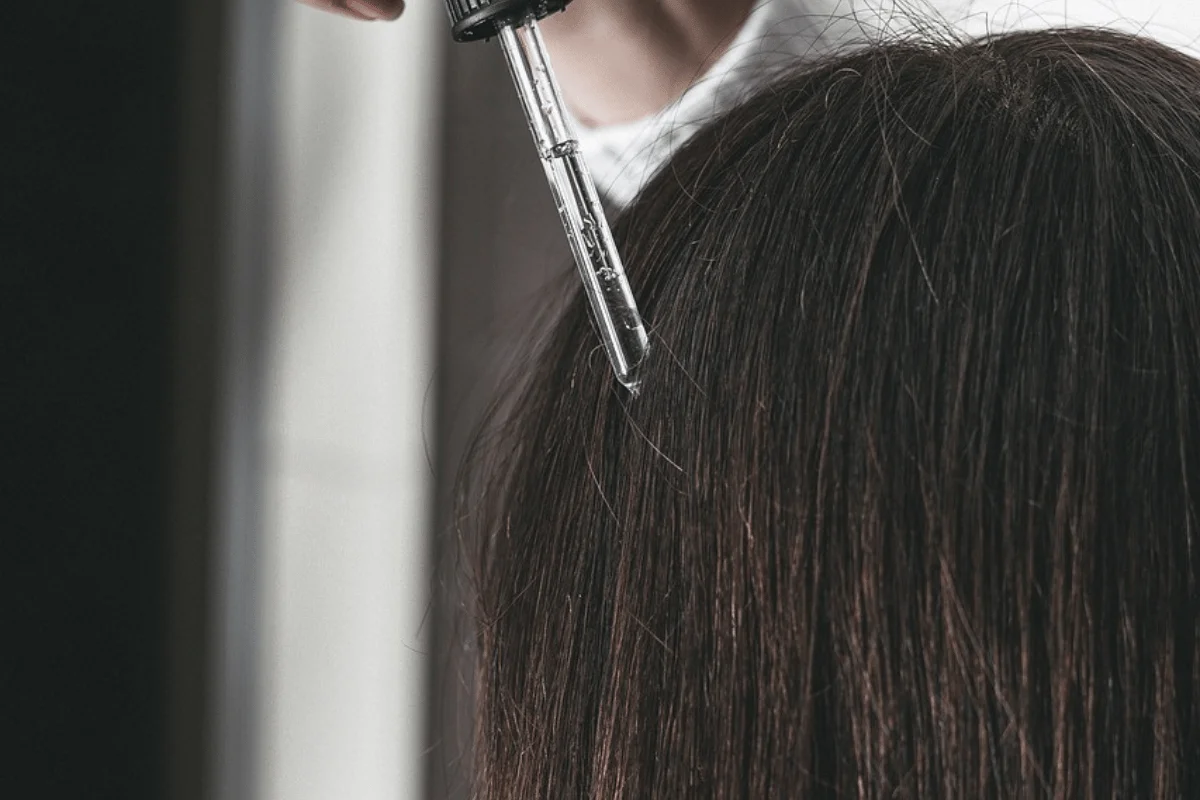
Benefits of Copper Peptides for Hair
Here are five key ways copper peptides can enhance hair health and appearance:
1. Blocks Hormone Causing Hair Miniaturization
There’s this pesky hormone called dihydrotestosterone, or DHT for short. DHT is bad for your hair. It enters your hair follicles and shrinks them over time. This shrinking is called “miniaturization,” and it’s why your hair might start looking thinner.
Copper puts the brakes on an enzyme called 5-alpha-reductase that helps DHT make more of it (by converting testosterone).
Copper peptides may also help keep DHT levels in check by slowing down this enzyme. As a result, your hair follicles can sigh relief and stay their normal size.
2. Increases Hair Follicle Size for Fuller Hair
Copper peptides may help wake up dormant hair follicles, potentially leading to new hair growth.
They also make your hair follicles bigger! Bigger follicles mean thicker, fuller-looking hair.
3. Boosts Blood Flow to Energize Hair Roots
Your hair needs nutrients to grow, just like a plant needs water and sunlight. Copper peptides help ensure your hair gets what it needs by improving blood flow to your scalp.
They may help widen your blood vessels and even create new ones. With better blood flow, your hair follicles get more oxygen and nutrients. This extra nourishment can help wake up sleepy follicles and strengthen your hair.
4. Prolongs Hair Growth Phase
Your hair goes through different phases in its life cycle. The phase where it’s actively growing is called the “anagen phase.” The longer your hair stays in this phase, the longer it can grow.
Copper peptides, especially GHK-Cu, can help your hair spend more time in this growing phase. The result? Potentially longer, healthier hair.
This is particularly exciting if your hair seems to stop growing at a certain length. Copper peptides might just help you break through that hair growth plateau!
5. Reduces Inflammation that Impairs Hair Cycles
Inflammation is like a fire alarm in your body. It’s useful when there’s a real threat, but if it goes off constantly, it causes problems.
Chronic inflammation in your scalp can disrupt your hair’s natural growth cycle.
Copper peptides have anti-inflammatory properties. They help create a suitable environment for hair growth if you have a sensitive scalp or are prone to conditions like dandruff or scalp psoriasis.
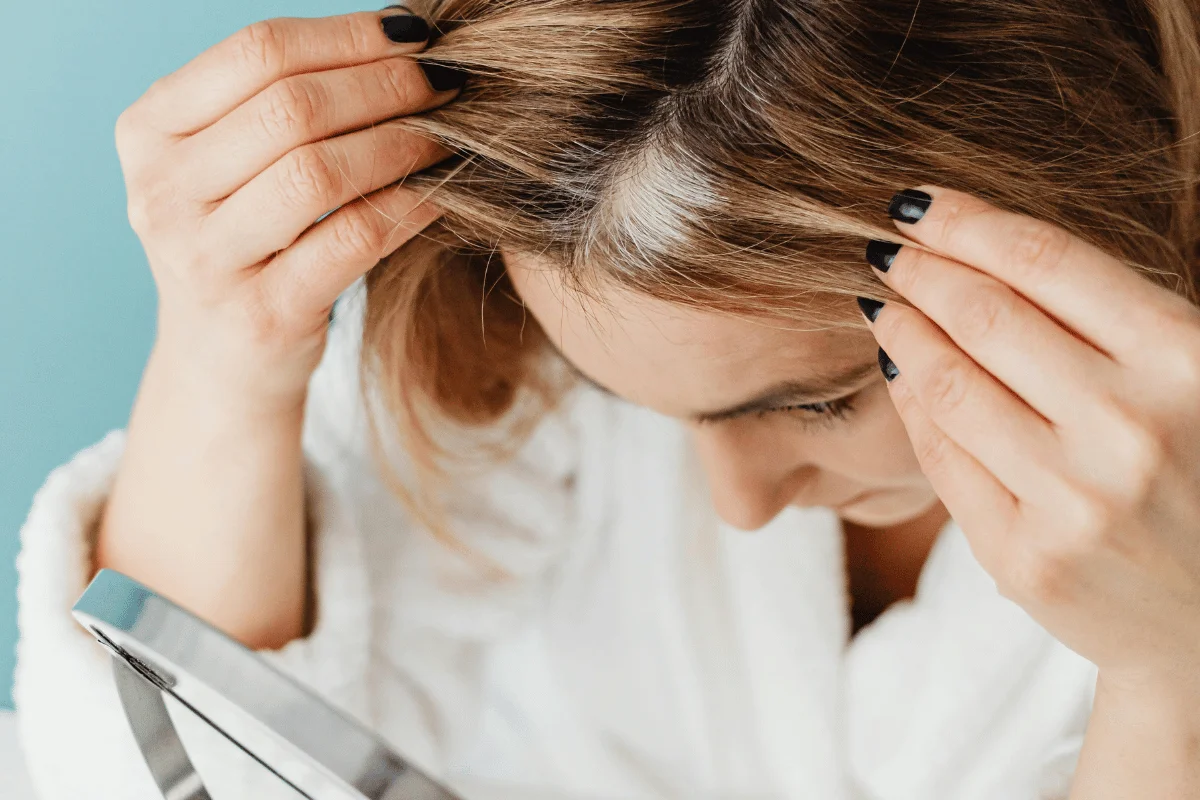
Application Methods for Copper Peptides for Hair Growth
If you’re interested in trying copper peptides for hair growth, here are the most common ways to use them:
- Topical Serums: This is the most popular method. Copper peptide serums are applied directly to the scalp, usually once or twice daily. They’re easy to use and can be incorporated into your hair care routine.
- Shampoos and Conditioners: Some hair care products now include copper peptides. While convenient, these may be less potent than serums as they’re rinsed off.
- Hair Masks: Deep-conditioning treatments containing copper peptides can be left on longer, potentially increasing absorption.
- Scalp Treatments: Professional scalp treatments at salons may use copper peptides as part of their formulations.
- Oral Supplements: While less common, some people take copper peptide supplements orally. However, topical application is generally considered more effective for hair growth.
When using any new product, you need to follow the instructions carefully.
Start with a patch test to check for any adverse reactions, and be patient – it can take several months to see noticeable results with hair growth treatments.
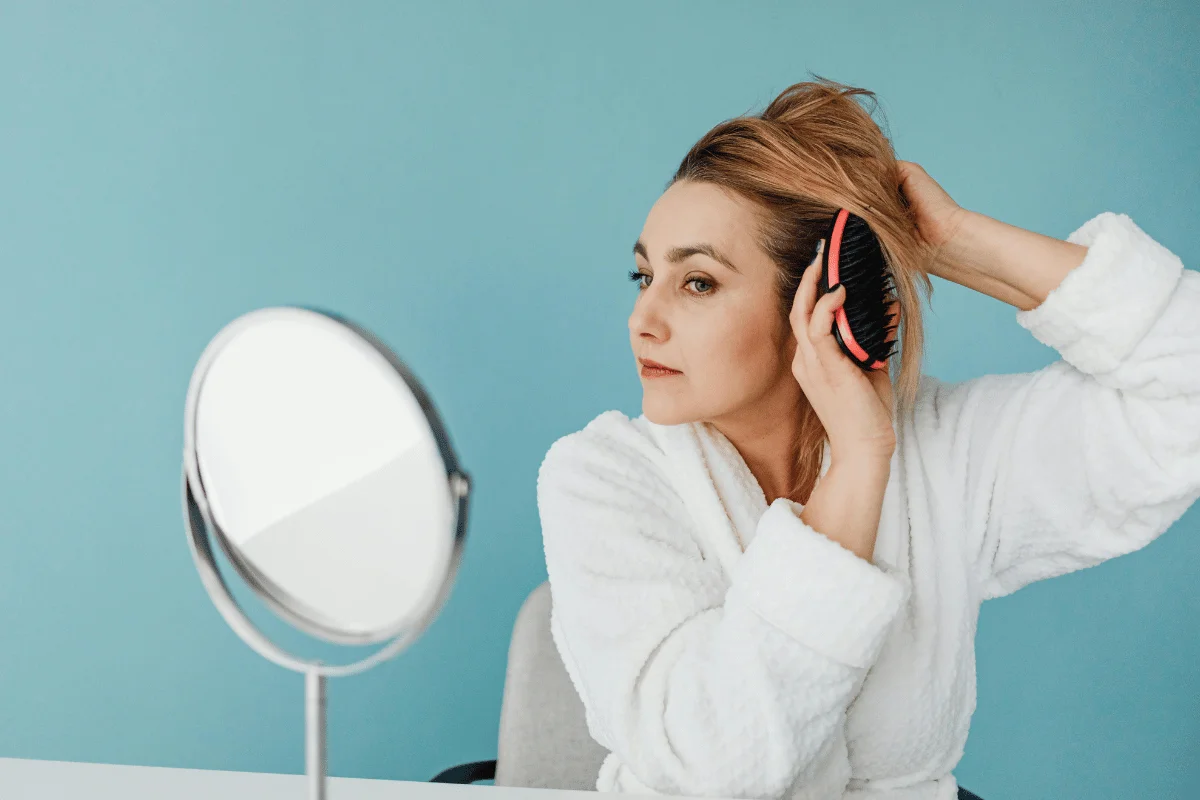
Best Copper Peptides for Hair Growth
As we said, many people are turning to copper peptides as a promising solution for hair growth.
Here are the top 3 copper peptides that show potential for helping you get better hair:
1. GHK-Cu
When we mention copper peptides, we mainly mean this one. This little powerhouse, GHK-Cu, short for glycyl-l-histidyl-l-lysine, has been shown to work wonders for hair growth.
First off, GHK-Cu is like a bodyguard for your hair. It blocks a hormone called dihydrotestosterone (DHT) that can stop hair from growing.
It’s great at helping new blood vessels grow. More blood vessels mean more blood flow to your hair follicles. And more blood flow means more nutrients for your hair, helping it grow stronger and faster.
GHK-Cu also helps produce collagen and elastin, crucial for keeping skin (and scalp) healthy and elastic.
Scientists from Yale University discovered something really interesting about GHK-Cu. It helps boost the production of fat cells in your scalp. These fat cells help strengthen your hair follicles and boost hair growth.
One more thing about GHK-Cu – it’s anti-inflammatory. This is important because inflammation can play a big role in hair loss, especially in conditions like male-pattern baldness.
5-Aminolevulinic Acid + GHK Peptide
5-Aminolevulinic Acid (5-ALA) and GHK peptide are a powerful combo for hair growth.
A 2016 study published in the Annals of Dermatology examined how well this combination works. They called it ALAVAX and tested it on 45 men with male-pattern hair loss.
Here’s what they did:
- Group A used ALAVAX 100 mg/ml
- Group B used ALAVAX 50 mg/ml
- Group C used a placebo
They all used their treatment once a day for six months. The researchers checked their hair count, hair length, and hair thickness and measured the participants’ happiness with the results.
So, what happened? Both groups using ALAVAX saw a significant increase in hair count:
- Group A (100 mg/ml) had 52.6 more hairs
- Group B (50 mg/ml) had 71.5 more hairs
- Group C (placebo) only had 9.6 more hairs
Interestingly, the lower dose (50 mg/ml) seemed to work even better than the higher dose.
The best part? No side effects were reported in any of the groups. That’s great news if you’re worried about trying new treatments.
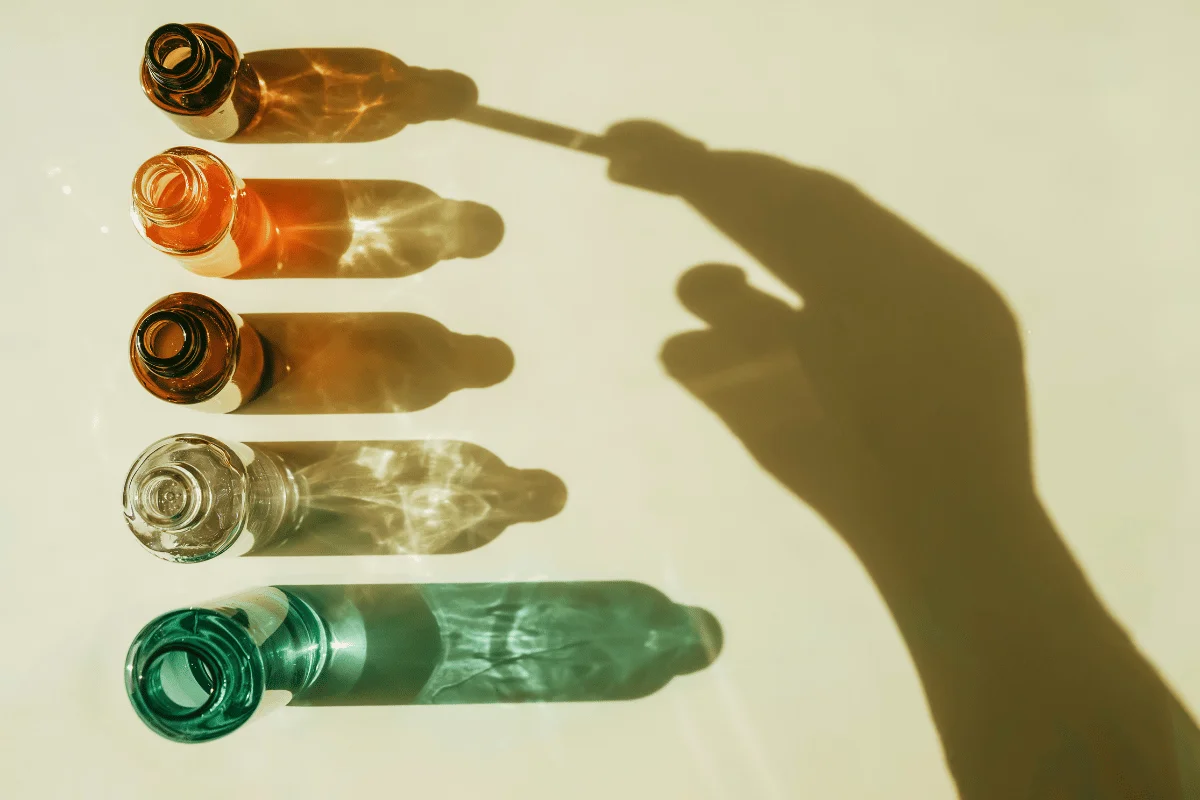
2. AHK-Cu
Next up on our list is AHK-Cu, or L-alanyl-L-histidyl-L-lysine-Cu2+. This copper peptide is naturally found in our bloodstream and plays a crucial role in hair growth and development.
Your hair follicles comprise protein cells that need nutrients from blood vessels to grow. AHK-Cu helps create new blood vessels by increasing the number of fibroblasts (cells that produce collagen) and activating vascular endothelial growth factor (VEGF).
This means more nutrient-rich blood gets to your hair follicles, helping them grow longer and stronger.
AHK-Cu also boosts the production of superoxide dismutase (SOD). This powerful antioxidant fights free radicals that can damage your hair and lead to hair loss.
A 2007 study published in the Archives of Pharmacal Research dove deep into how AHK-Cu affects human hair growth.
Here’s what they found:
- Hair Growth Boost: AHK-Cu stimulated the elongation of human hair follicles. This means it helped hair grow longer.
- Cell Proliferation: AHK-Cu also increased the proliferation of dermal papilla cells in vitro. More dermal papilla cells mean more potential for hair growth.
- Cell Survival: AHK-Cu increased the ratio of Bcl-2 to Bax proteins. Bcl-2 is a protein that promotes cell survival, while Bax promotes cell death. A higher Bcl-2/Bax ratio means more cells are surviving.
- Reduced Cell Death Markers: Treatment with AHK-Cu reduced the levels of certain forms of caspase-3 and PARP (enzymes that act as markers of cell death when elevated).
The researchers concluded that AHK-Cu promotes the growth of human hair follicles. It helps existing hair follicles grow longer hair, creates an environment for new hair follicles to grow, and keeps hair cells alive and healthy.
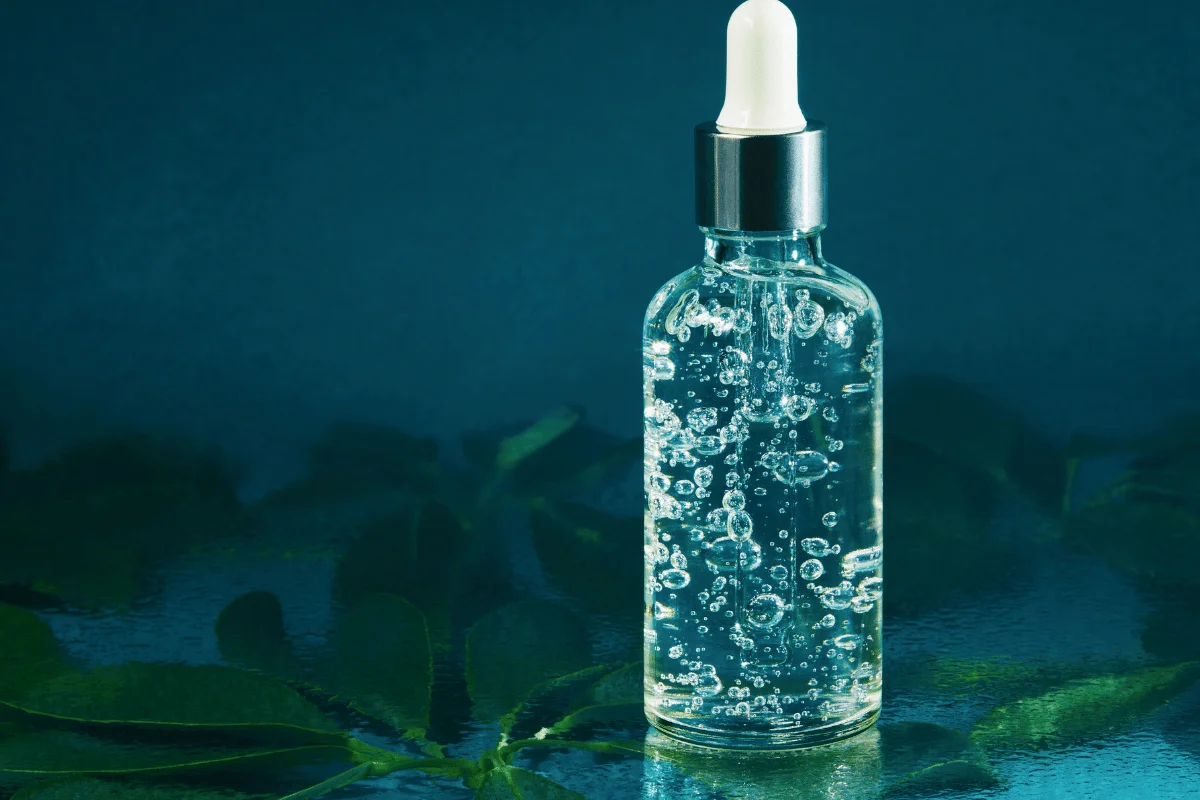
3. QR678 & QR678 Neo
QR678 and its newer version, QR678 Neo, are exciting new formulations that combine several growth factors and peptides to promote hair growth.
A study published in Plastic and Reconstructive Surgery Global Open in 2020 examined QR678 and QR678 Neo in mice. The researchers wanted to see if these formulations were safe and if they actually helped with hair growth.
Here’s what they found:
- Hair Growth: They injected QR678 and QR678 Neo into mice to see if they would produce hair growth. The results were positive—they saw hair growth in a 0.25 cm radius around the injection site. That might not sound like much, but for a mouse, it’s significant!
- Chemotherapy Hair Loss: They also looked at whether these formulations could help with hair loss caused by chemotherapy. Again, the results were promising. The injections helped the mice keep their hair even when treated with chemotherapy drugs.
The researchers concluded that intradermal injections of QR678 and QR678 Neo are safe and effective options for treating hair loss.
They even suggested that these formulations might be worth trying in humans who have lost their hair due to chemotherapy.
Important note: This study was done on animals, not humans. While the results are promising, more research is needed to confirm these effects in people.
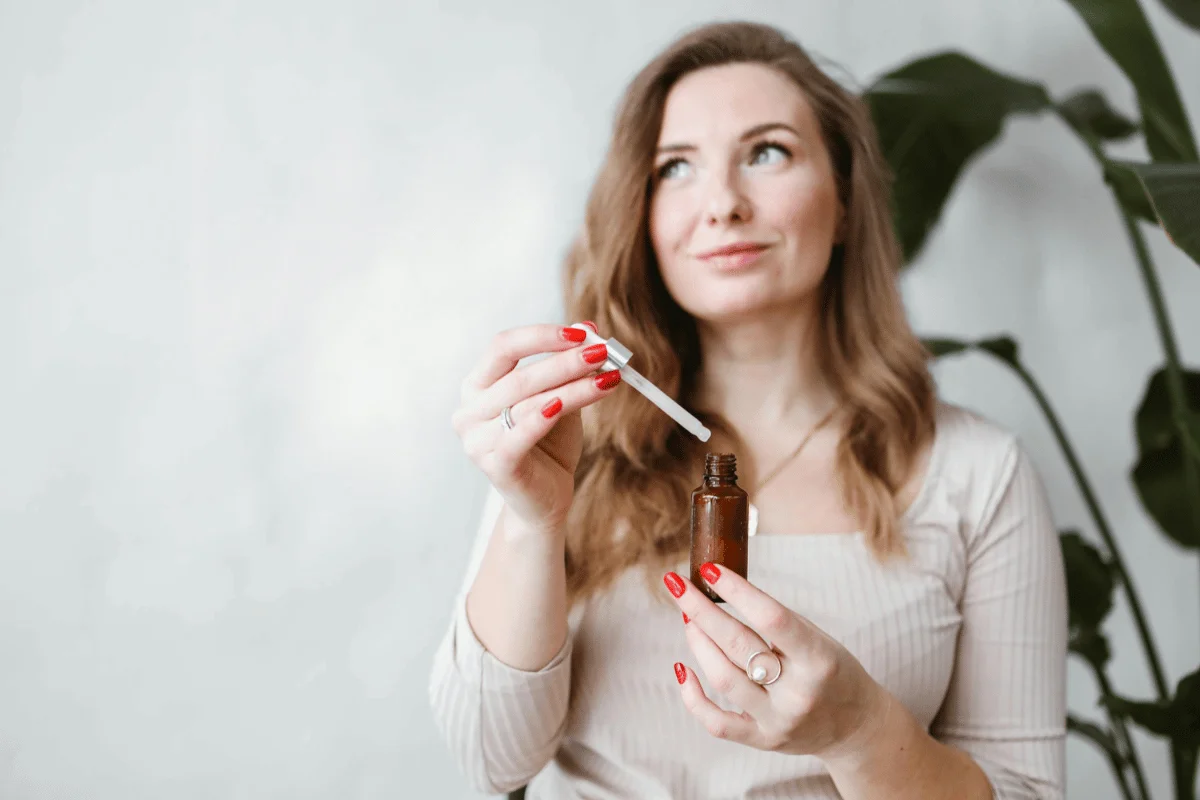
Potential Side Effects and Precautions
When following product guidelines, topical copper peptides rarely prompt side effects.
Still, here are some possible side effects:
- Skin irritation or redness
- Itching or burning sensation on the scalp
- Headaches (rare but reported by some users)
- Temporary shedding (which can be part of the hair renewal process)
Precautions:
- Patch Test: Always do a patch test before applying any new product to your scalp.
- Start Slow: Begin with a lower concentration and gradually increase as your skin adapts.
- Don’t Overuse: More isn’t always better. Stick to the recommended usage instructions.
- Avoid Eyes: Be careful not to get copper peptide products in your eyes.
- Pregnancy and Breastfeeding: If you’re pregnant or breastfeeding, consult with your doctor before using copper peptides.
- Medical Conditions: Those with Wilson’s disease or other copper metabolism disorders should avoid copper peptide products.
- Drug Interactions: If you’re on any medications, check with your healthcare provider to ensure there are no potential interactions.
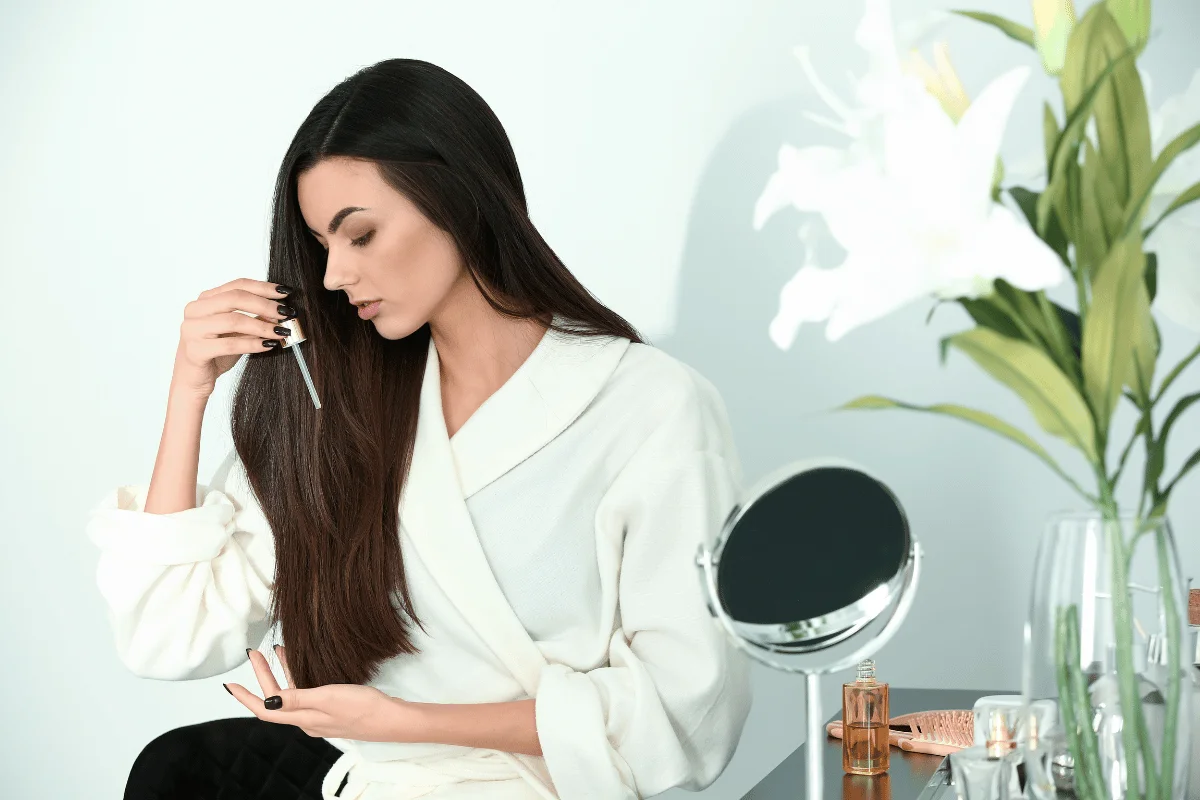
Where to Buy Copper Peptides
You can find copper peptide products for hair growth in various places:
- Biolongevity Labs: You can find research-grade copper peptides on Biolongevity Labs. We offer high-quality GHK-Cu formulations with over 99% purity. Our products undergo rigorous quality testing and are available with same-day shipping.
- Dermatologist Offices: Some medical-grade copper peptide treatments are available through dermatologists.
- Salons: High-end salons may offer copper peptide treatments or sell products containing them.
Always buy from reputable sources to ensure you’re getting genuine products. Be wary of deals that seem too good to be true, as counterfeit beauty products can be harmful.
Aim for clinical-strength 1-2% concentrations in serums or masks for optimal effect. Prices often range from $25 to $75.
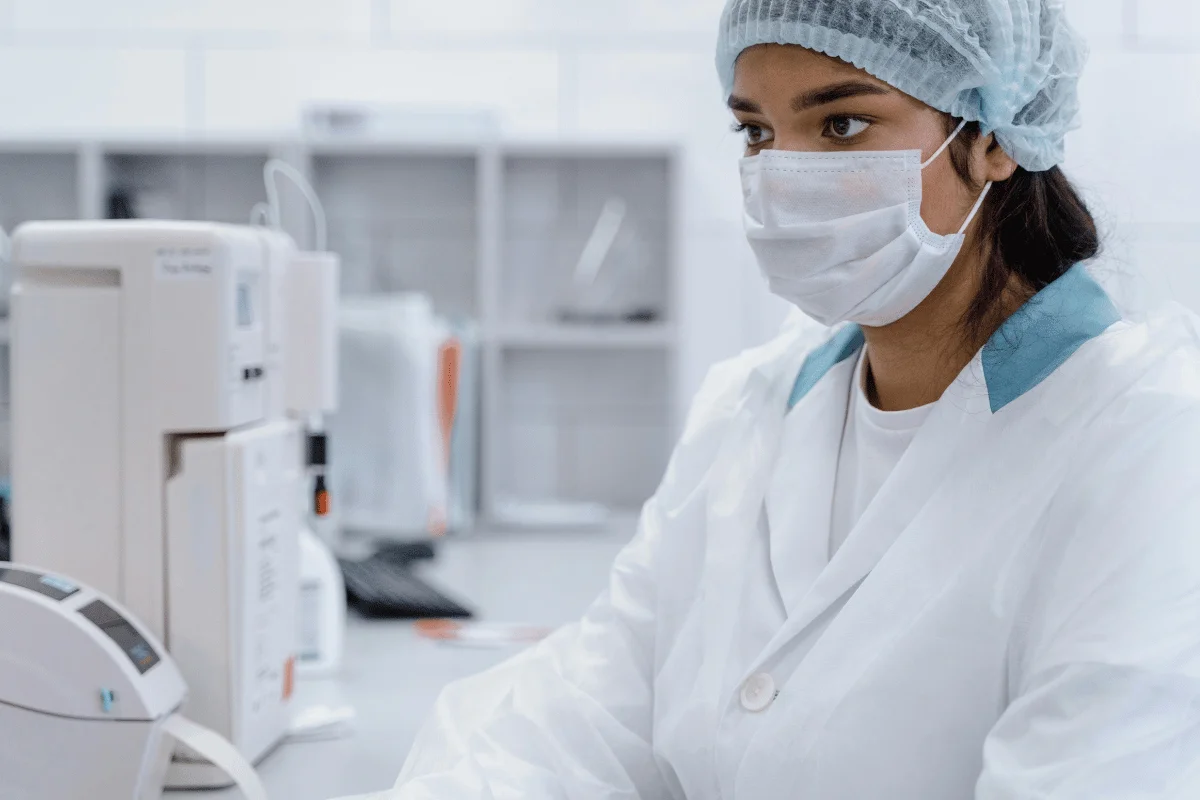
Frequently Asked Questions (FAQs)
Let’s address some common questions about copper peptides for hair growth:
Can Copper Peptides Help with Hair Loss Due to Aging?
Yes, copper peptides may be particularly beneficial for age-related hair loss. As we age, our natural levels of copper peptides decrease, which can contribute to thinning hair.
Supplementing with copper peptides may help counteract this effect.
Do Copper Peptides Cause Any Hormonal Changes?
No evidence suggests that topically applied copper peptides cause systemic hormonal changes.
They work primarily at the scalp level, potentially blocking DHT locally, but they don’t affect overall hormone levels in the body.
How Often Should Copper Peptides Be Applied for Hair Growth?
Applying copper peptides once or twice daily directly on the scalp or as a shampoo/conditioner provides sufficient follicular support and penetration in most cases.
Always follow the manufacturer’s instructions.
Can Copper Peptides Reverse Balding?
Copper peptides can help regrow hair for mild to moderate balding by energizing dormant follicles.
However, severely receded hairlines are difficult to fully reverse, so using peptides with medications may offer better results.
Conclusion – Copper Peptide for Hair Growth
In review, copper peptides like GHK-Cu revive weakening follicles through specialized mechanisms that promote growth cycles, blood flow, and thickness.
While not instant, incorporating medical-grade peptides persistently can lead to discernable improvements, reducing loss plus strands that appear and feel healthier. Consult a dermatologist or trichologist for personalized advice.
